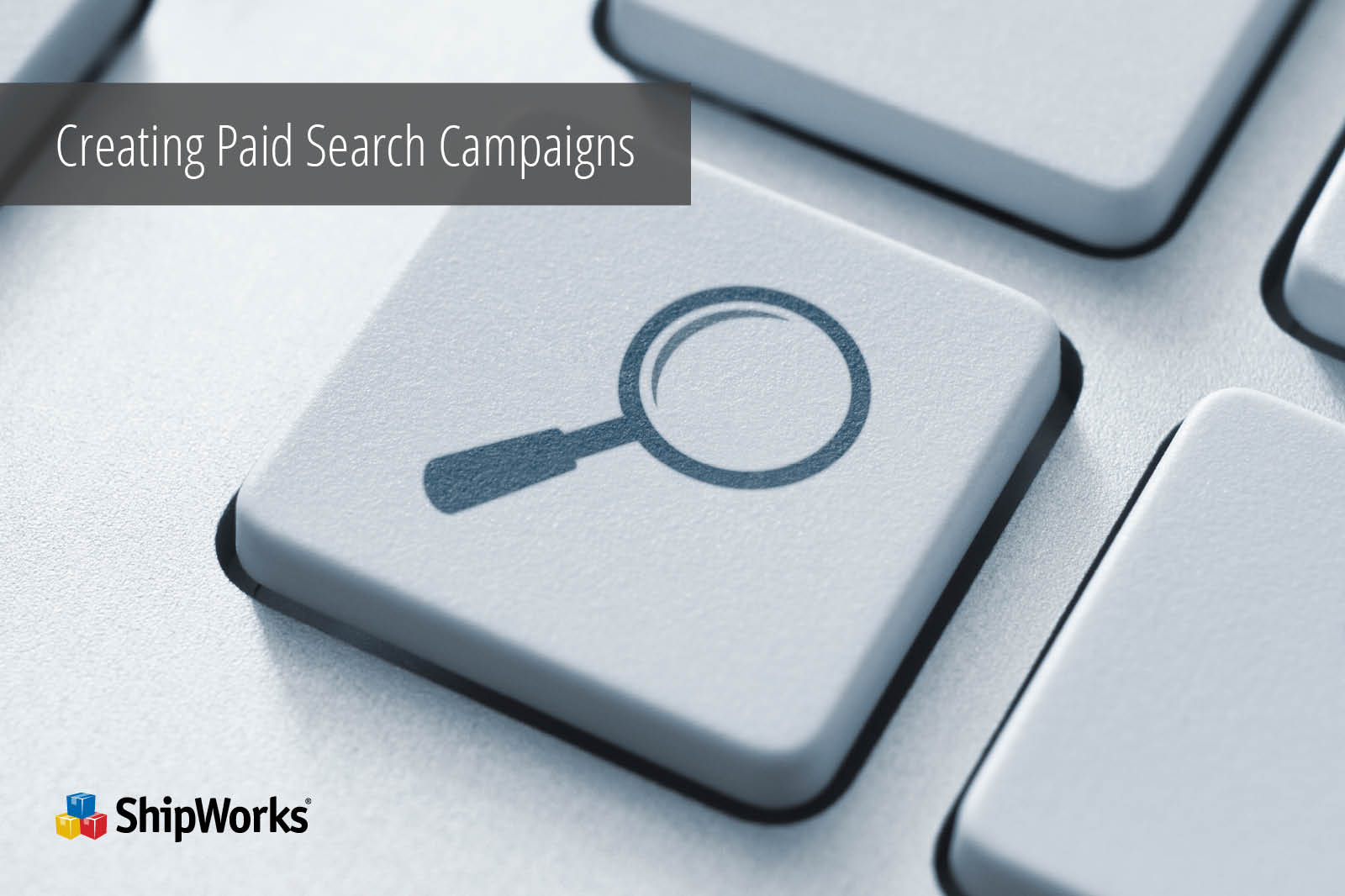Top 5 Tips for Paid Search
 If you’re looking to increase traffic to your ecommerce site, paid search can be a highly effective marketing channel. Paid searches allow small firms to compete alongside larger operations by directing traffic equitably via the same search terms, essentially leveling the playing field at a reasonable price.
If you’re looking to increase traffic to your ecommerce site, paid search can be a highly effective marketing channel. Paid searches allow small firms to compete alongside larger operations by directing traffic equitably via the same search terms, essentially leveling the playing field at a reasonable price.
Follow these 5 tips to help craft a paid search campaign.
- Consider your goals. Decide your priority for your campaign. Determine if you are looking for a certain number of leads per month at your price point, or if your goal is a straight revenue increase. These variables will impact how you structure your campaign and budget.
- Brainstorm keywords. When you focus on exact-match keywords, your ecommerce site will come up higher in searches. Carefully consider alternative spelling and different parts of speech, such as nouns and adjectives, as well as negative terms to exclude from your campaign (for example, add “red” as a negative term if everything you sell is blue). In addition, longer tail terms – searches for extremely specific or niche products – can further narrow down your prospects with clicks carefully aligned to what you sell.
- Assess demand. Plug your brainstormed keywords into an online keyword tool (like the Google AdWords Keyword Planner) to see if potential shoppers are already conducting those types of searches. How pricey might those particular keywords be for your campaign? For example, when you’re making your final campaign decisions, you’ll likely want to avoid broad match keywords that come with a higher cost per click and/or align with less relevant searches.
- Budget wisely. Review your analytics to determine the upper limit of what you’re comfortable spending per click – also known as the Maximum Cost per Click or MAX CPC. Is that number higher than the suggested bid provided by your keyword tool (Estimated CPC)? If so, this term could be a profitable one for you. Using a CPC management tool, such as Google AdWords, will give you increased control over your campaigns, with real-time updates on what you’re spending and data to support whether or not you’re getting the best value out of your keywords.
- Keep your new visitors engaged. Once your paid search starts generating unique hits to your site, you’ll need to take steps to turn casual browsers into buyers. Offer a discount, add-on or other incentive to complete an immediate purchase in order to deter customers from clicking away to another site. A small hit to your bottom line may be worth the price of establishing a trusting relationship with these visitors, whose search habits help refine your paid search campaign!